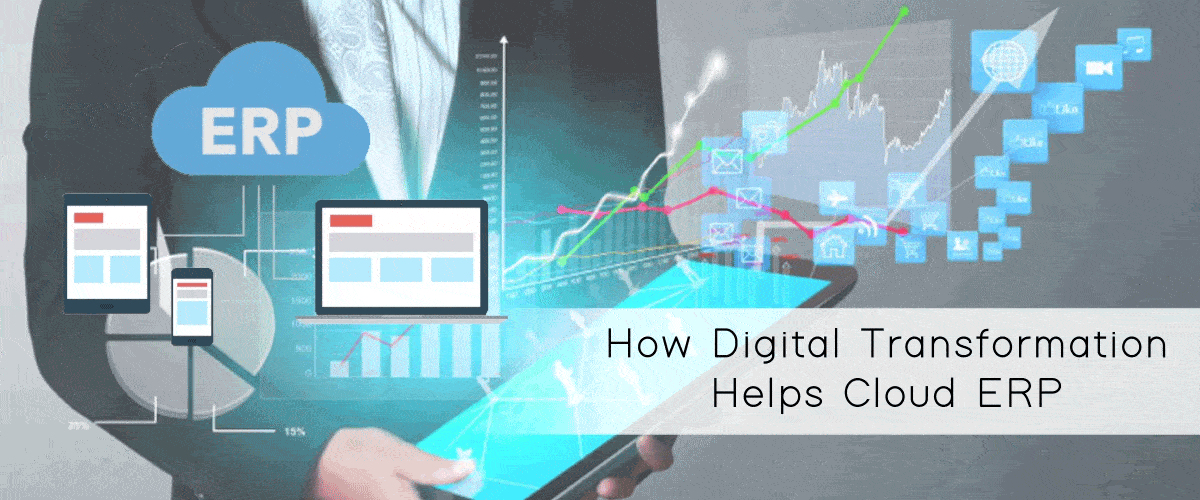How Digital Transformation helps Cloud ERP
Category : Real Estate Sector
Blog posted by : Admin / 03 Oct, 2019
ERP has been the nucleus of business operations for several years now. A huge wave of transformation has hit shores of all industries and businesses, giving rise to heavy investment in technology and tools as a part of their digital transformation strategy.
Digital transformation refers to the incorporation and integration of digital technology into the fabric of an organisation, changing the operations and functioning of the organisation on a fundamental level. But true digital transformation will be achieved only when the culture of the organisation is transformed to carry an attitude of innovation and experimentation.
Businesses have now well recognised the importance of digital transformation and have vigorously started to pursue it. As a result, Digital Transformation is among the biggest buzzwords on the scene right now. According to IDC, following the Worldwide Semiannual Digital Transformation Spending Guide, the global spending on digital transformation from the entire year is anticipated to reach $1.97 trillion by the year 2022.
But why exactly is everyone obsessed with this transformation? What exactly is the yield? What do they stand to gain? These five key benefits are sure to make the case for digital transformation:
-
Superior customer experience
-
Cost optimisation
-
Superior innovation and agility
-
Better analytics
-
Resource optimisation
Cloud ERP in Digital Transformation
The power of cloud computing technology enables a comprehensive and real-time view of business operations thereby elevating administrative and managerial capabilities. The stream between divisions is improved without any additional investment. The time-consuming operation of Data collection and management can be taken care of with the tools that Digital transformation brings in to play. Cloud ERP and Digital transformation not only save time in data collection but also enables the leveraging of the same by analysing it and creating actionable insights. It boosts collaboration between streams and synergises business functions.
In this world that is rapidly moving to a system of digitally empowered functions, it is imperative to keep in step with the program. Applications and technology will be the key to this transformation. Cloud ERP offers enhanced interoperability, requisites for better decision-making requisites, worker efficiency, and a synergised work environment.
Importance of an Integrated Cloud ERP System in Digital Transformation
The pillars of any Organisation are clients, employees, and operations. Digital transformation adds value to all three of these areas by improving customer relations, utilization of the workforce, and operations efficiency.
Clients - Better cohesion in the workstream will give way to better client interaction and customer experience. Real-time, comprehensive visibility makes it possible to detect and fix errors and inconsistencies. This makes it possible to provide exemplary service to customers at competitive prices. This paves the way for good customer relations and goodwill.
Employees - Not only does automation reduce errors and speed up functions, but it also frees up employees to concentrate on the more demanding activities. Cloud infrastructure gives employees the ability to access the system anytime and from anywhere with an internet-enabled device. This rise in efficiency boosts productivity.
Operations - A centralised system allows complete visibility makes gives way to exceptional collaboration. Real-time view of data organisation-wide data with transparency enhances decision-making capability. An advanced Cloud ERP system automates most business functions saving on valuable man-hours, reducing errors and speeding up functions. In addition, it helps with statutory compliance.
Cloud ERP plays a significant role in digital marketing and has a world of goodness to offer. To not capitalise on this, would be a grave mistake for any business in today’s industry.








